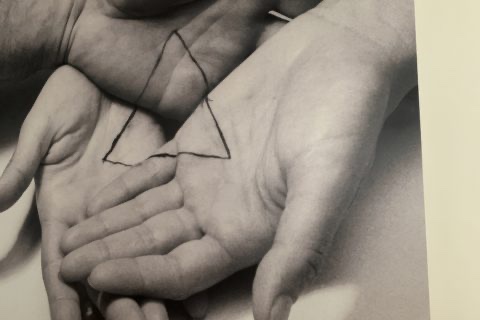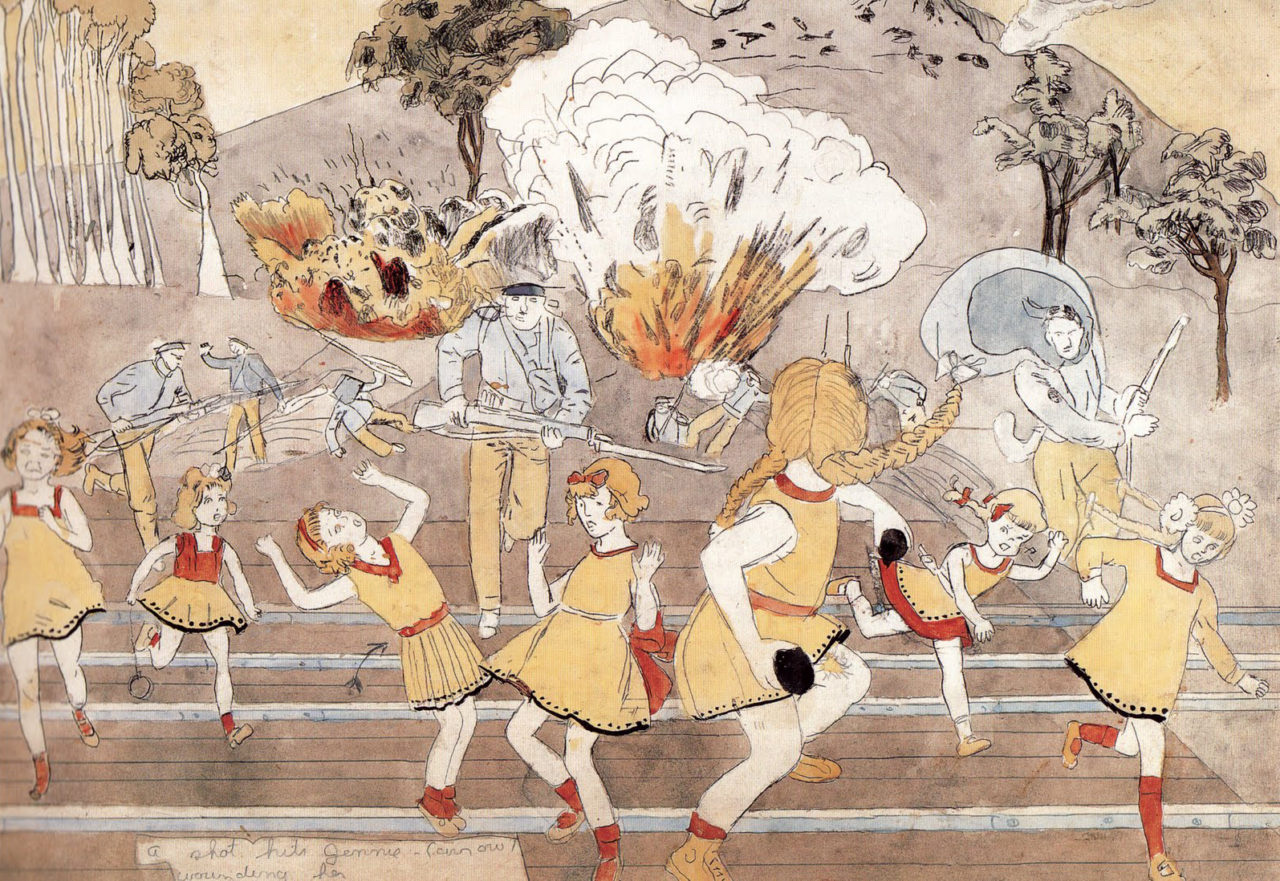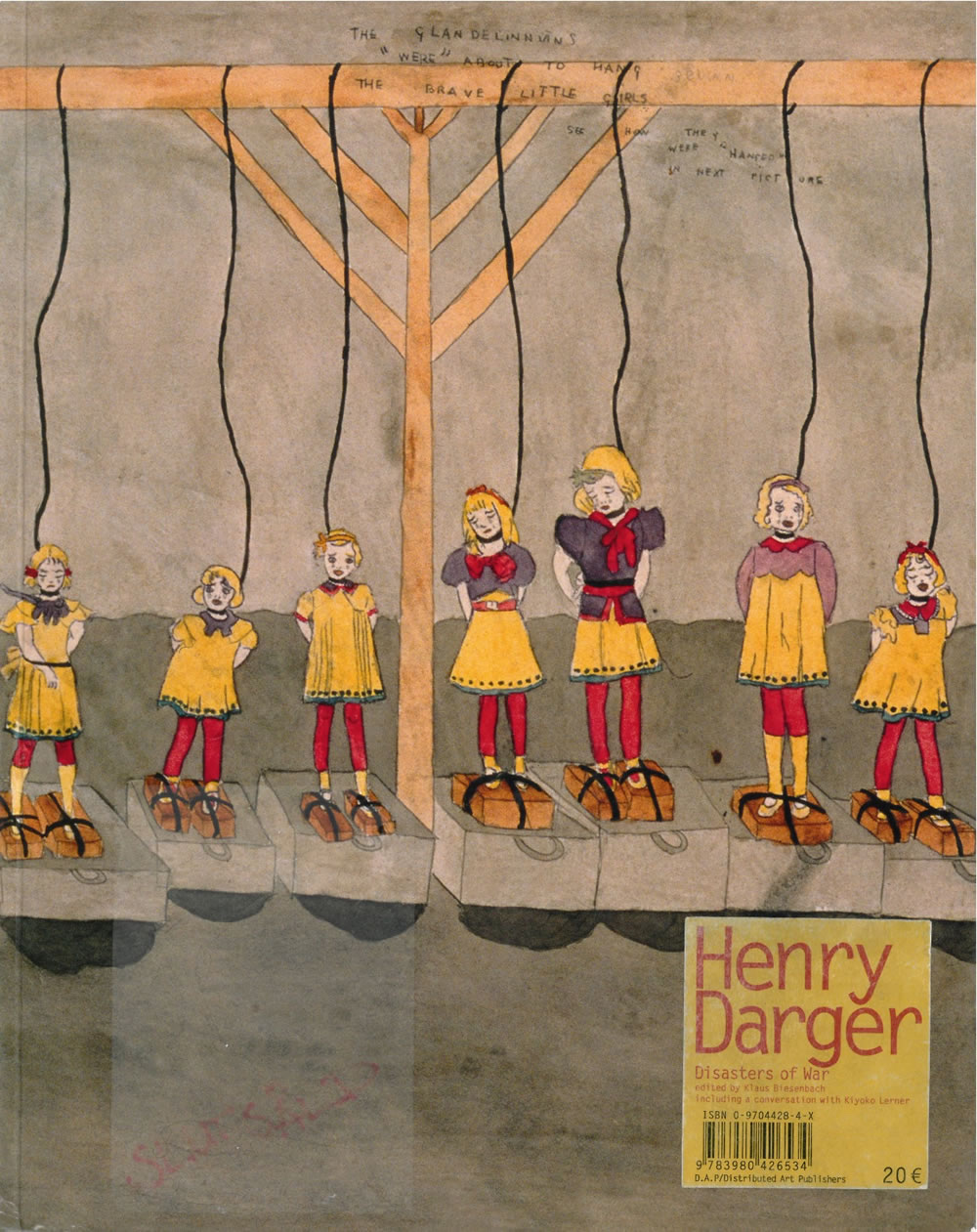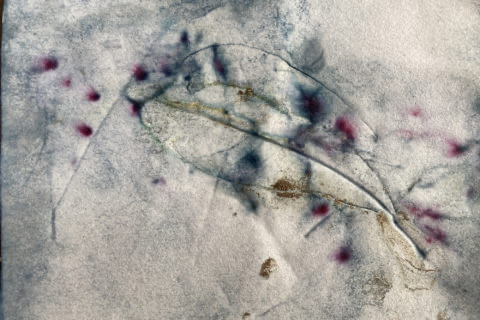我們都寂寞。這話或許都不再是老調,而是隨伴我們日常生活而存在的感覺。
專家說寂寞危害健康,程度尤如一天吸十五支煙,於是英國政府剛委任新設的寂寞大臣(The Minister for Loneliness),想辦法對抗這個當代社會中那無可避免、又無可奈何的寂寞感。這是個充滿悖論的年代,人與人在光纖世界中,不論身在何方都在彈指之間被聯繫著。與無數朋友分享生活點滴時,那孤獨感更形強烈 。遠在這光纖世代之前,藝術家Henry Darger終身活在完全孤獨的世界,在遺於世界的外來者(Outsider)的狀態中,Darger建立了另一個世界,關於一名為Vivian的女孩及她身處的不真實國度。
生於1892年美國芝加哥伊利諾伊州,年幼時成為孤兒。十六歲逃離孤兒院,找到一份在醫院的清潔工作,那成為了他終身職業。自1932年起到1972年,整整四十年,他一人獨居在伊利諾伊州韋伯斯特大道851號二樓的一間單人房中。沒有朋友,沒有親人,有人發現他終日自言自語,有人見到他總是衣衫襤褸,有人目睹他終日在垃圾堆中尋寶。在1972年年末,八十歲的他沒有辦法再攀兩層樓梯,於是入住療養院。在死神來臨前,叮囑房東把他的東西全棄掉。一天房東跟朋友來到了Darger的單人房,打開房門看到盡是Darger從垃圾堆中撿來的雜誌報紙,還有其他雜物,當中更發現一部接近一萬六千頁,名為《The Story of the Vivian Girls, in What is Known as the Realms of the Unreal, of the Glandeco-Angelinian War Storm, Caused by the Child Slave Rebellion》,當中更附有插圖。層層疊的雜物及那長長的書名彷彿是累積了幾十年的寂寞。房東是名攝影師,對圖像及文化有相當的敏感度,知道自己發現了一名被遺於當代藝術主流外的藝術家,於是將Darger所有物品保存下來。
Vivian Girls是關於一群女孩如何在飛天龍的協助下,擺脫奴隸的生活。聽來是個天真無邪小孩對抗邪惡的兒童故事,但Darger的插圖卻充滿血腥及虐待的描繪,當中更有小孩被虐待至腸穿肚爛而身亡。在Darger那個虛擬國度中的人物都不是他原創,都是以報紙、雜誌中看到的人物作為雛型,然後以小孩用的顏料及水彩上色。年幼時成為孤兒,然後終其一生在絕對的孤獨中渡過。在他晚年的日記中,他說自己一生從沒有過快樂的聖誕及新年,活於悲苦中卻不存仇恨之心。
We are all lonely. Perhaps this saying is no longer a cliche, but it corresponds to a feeling accompanying our daily life.
Experts say solitude brings as much harm to health as smoking 15 cigarettes a day does. That is why the British government has recently appointed a Minister for Loneliness, a new position, in an attempt to tackle the issue of unavoidable loneliness plaguing contemporary society. In an age where paradoxical thoughts abound, people live in a world of optical fiber, and wherever you are, it takes only one click to connect you with others. When you share bits and pieces of your life with numerous friends, you feel even lonelier. Long before the dawn of the optical fiber era, Henry Drager, an artist, had lived his whole life in complete solitude. Left behind as an outsider in the world, Darger built a different world about a girl named Vivian and the fictional realms where she lives.
Born in 1892 in Chicago, Illinois in the US and orphaned when he was little, he ran away from the orphanage at 16 and found a cleaning job at a hospital, which became his lifelong career. Over the span of 40 full years, from 1932 to 1972, he lived alone in a room on the second floor at 851 W. Webster Avenue. Without any friends nor relatives, he was found talking to himself all the time. Some said he was always disheveled while some others spotted him scavenging on the rubbish dump throughout the day. Towards the end of 1972, at 80, when he could no longer climb two flights of stairs, he moved into a hospice house. On his deathbed, he urged the property owner to discard all his belongings. One day, the property owner and his friend opened the door to his Darger’s room, and found it overflowing with magazines and newspaper as well as other random objects that Darger picked from the rubbish dump. Among them they found a work of almost 16,000 pages titled The Story of the Vivian Girls, in What is Known as the Realms of the Unreal, of the Glandeco-Angelinian War Storm, Caused by the Child Slave Rebellion, which contains even illustrations. The stacked junks items and the long winding book title seem to capture his solitude accumulated over the decades. As a photographer with a sharp eye for images and cultures, the property owner knew that he had found an artist left behind outside mainstream contemporary art. Thus, he kept all of Darger’s belongings.
Vivian Girls is about how a group of girls try to escape the life of slavery with the help of flying dragons. Even though it sounds like a story for children about innocent children against the evil, Darger’s illustrations are filled with depictions of bloody scenes and tortures, including a child being tortured to death, her body badly mutiliated. Characters featured in his fictional world are not his original creations but are based on the persons he found on newspapers and magazines, painted in watercolors and paints used by children. He became an orphan when he was little, and then spent his whole life in absolute solitude. In a diary entry written in his final years, he wrote that he had never had a happy Christmas all his life nor a good new year, and that he felt bitter but not revengeful.







